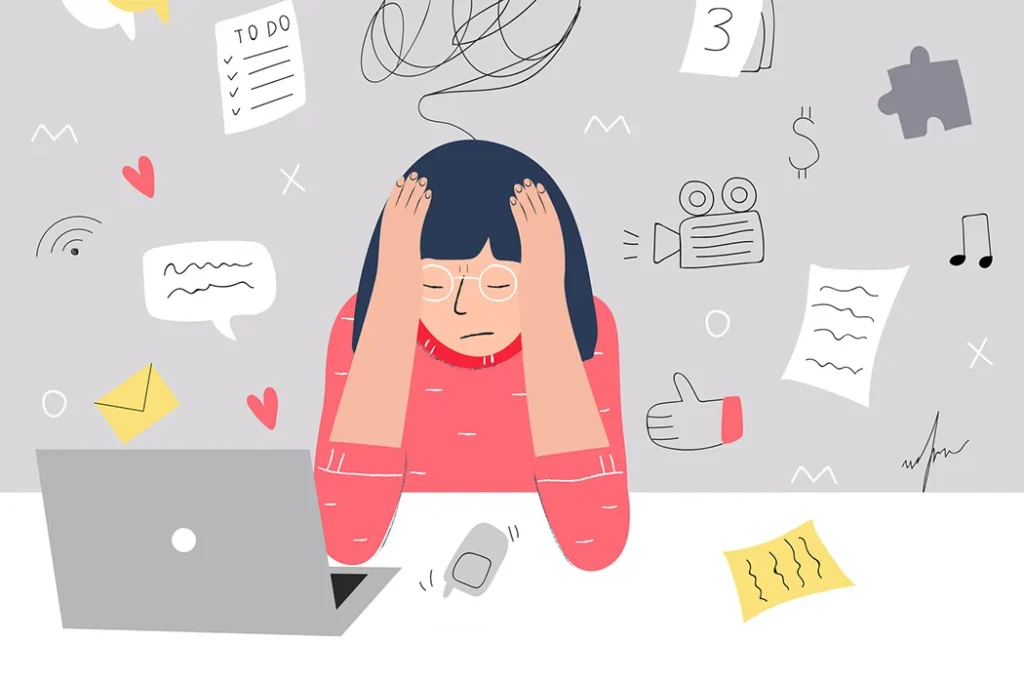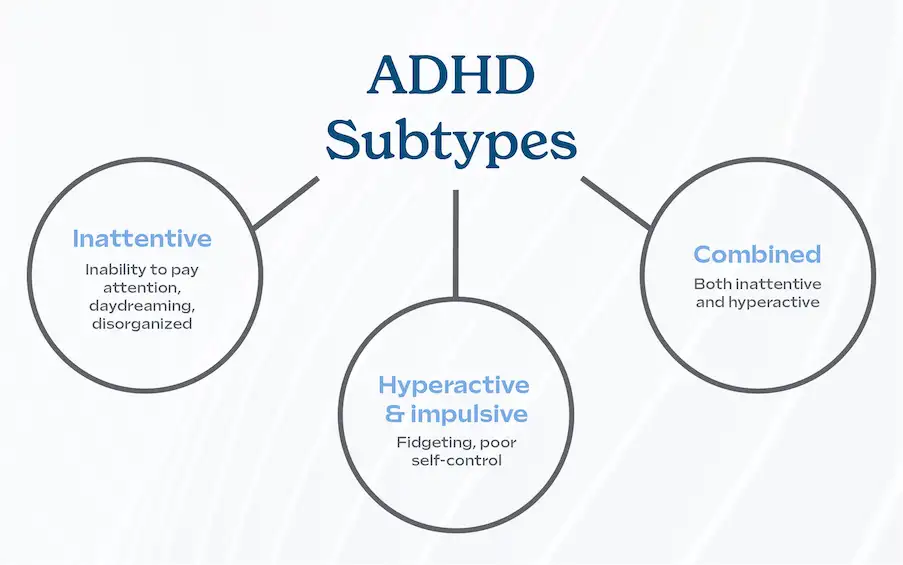ADHD Full Form: Types, Causes, Symptoms, Diagnosis, and Treatment
ADHD affects kids and adults. It causes impulsivity, hyperactivity, and inattention. In this article, we will talk about ADHD Full Form, its Types, Causes, symptoms, diagnosis, and treatment.
Read Other Full Forms
What is ADHD?
ADHD affects the brain’s ability to control attention, behavior, and impulses. It affects 8-10% of children and 4% of adults worldwide. ADHD can last into adulthood.

What is ADHD Full Form?
Attention Deficit Hyperactivity Disorder
Types of ADHD
There are three main types of ADHD:

- Inattentive Type: This type of ADHD is characterized by difficulty paying attention, following instructions, and organizing tasks.
- Hyperactive-Impulsive Type: This type of ADHD is characterized by hyperactivity and impulsivity. People with this type of ADHD may have trouble sitting still, interrupting others, and acting without thinking.
- Combined Type: This is the most common type of ADHD, which involves both inattention and hyperactivity-impulsivity.
What Causes ADHD?
The exact cause of ADHD is unknown, but it is believed to be a combination of genetic, environmental, and neurological factors. Studies have shown that ADHD runs in families, and children with ADHD often have close relatives with the disorder.
ADHD Symptoms
ADHD symptoms can vary depending on the type of ADHD and the individual. Some common symptoms of ADHD include:
- Difficulty paying attention or staying focused
- Hyperactivity or restlessness
- Impulsivity or acting without thinking
- Disorganization or forgetfulness
- Procrastination or difficulty starting tasks
- Difficulty with time management
- Poor planning or prioritizing
- Trouble completing tasks
- Lack of motivation
Diagnosis of ADHD
Diagnosis of ADHD involves a comprehensive evaluation, which includes a physical examination, medical history, and assessment of symptoms. ADHD is often diagnosed in childhood, but it can also be diagnosed in adulthood.
Treatment of ADHD
ADHD is a treatable condition, and there are several options available for managing the symptoms. Treatment of ADHD typically involves a combination of medication, behavioral therapy, and lifestyle changes.
Medications for ADHD
Stimulants and non-stimulants treat ADHD. Most ADHD medications are stimulants, which boost brain dopamine and norepinephrine to improve focus and attention.
Behavioral Therapy for ADHD
Behavioral therapy, which teaches ADHD patients new skills and behaviors, is another effective treatment. CBT, parent training, and social skills training are ADHD behavioral therapies.
Lifestyle Changes for ADHD
Lifestyle changes can also be helpful in managing ADHD symptoms. Some lifestyle changes that may be beneficial for people with ADHD include:
- Regular exercise
- Healthy diet
- Good sleep hygiene
- Time management strategies
- Stress management techniques
- Mindfulness meditation
Alternative Treatments for ADHD
Some alternative treatments may also be helpful in managing ADHD symptoms, but it is important to note that there is limited scientific evidence to support their effectiveness. Some of these treatments include:
- Omega-3 fatty acid supplements
- Herbal supplements, such as ginkgo biloba and St. John’s wort
- Acupuncture
- Neurofeedback
ADHD in Children
ADHD is common in children and can affect academic and social development. ADHD kids can struggle in school, socially, and academically. ADHD is often treated with medication, behavioral therapy, and parental and teacher support.
ADHD in Adults
Adult ADHD can affect work, relationships, and daily life. ADHD adults may struggle with time management, organization, and focus. Adult ADHD treatment often includes medication, behavioral therapy, and lifestyle changes.
ADHD and Relationships
ADHD can have a significant impact on relationships, both romantic and platonic. Individuals with ADHD may struggle with communication, organization, and maintaining attention. Treatment for ADHD can be helpful in improving communication and reducing relationship stress.
ADHD and Work
ADHD can also impact work performance, and individuals with ADHD may struggle with organization, time management, and maintaining focus. Treatment for ADHD can be helpful in improving work performance and reducing workplace stress.
ADHD and School
Children with ADHD may struggle with classroom behavior and focus, which can affect academic performance. Children’s ADHD treatment can improve academic performance and classroom behavior.
Conclusion
ADHD affects daily life and is common. Medication, behavioral therapy, and lifestyle changes treat ADHD. Professional help is needed to diagnose and treat ADHD symptoms.
Frequently Asked Questions
Q.1 What is the full form of ADHD?
ADHD stands for Attention Deficit Hyperactivity Disorder.
Q.2 How common is ADHD?
ADHD is a common condition that affects approximately 8-10% of children and 4% of adults worldwide.
Q.3 What causes ADHD?
The exact cause of ADHD is unknown, but it is believed to be a combination of genetic, environmental, and neurological factors.
Q.4 Can ADHD be treated?
Yes, ADHD is a treatable condition, and there are several options available for managing the symptoms.
Q.5 Is ADHD only diagnosed in children?
No, ADHD can persist into adulthood, and it can be diagnosed in adults as well.

